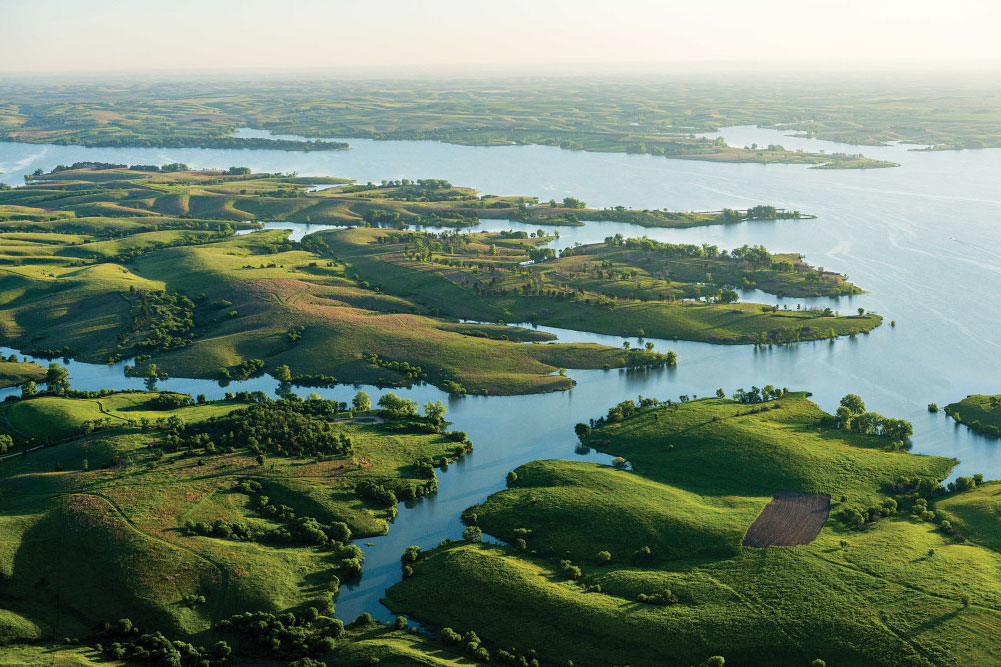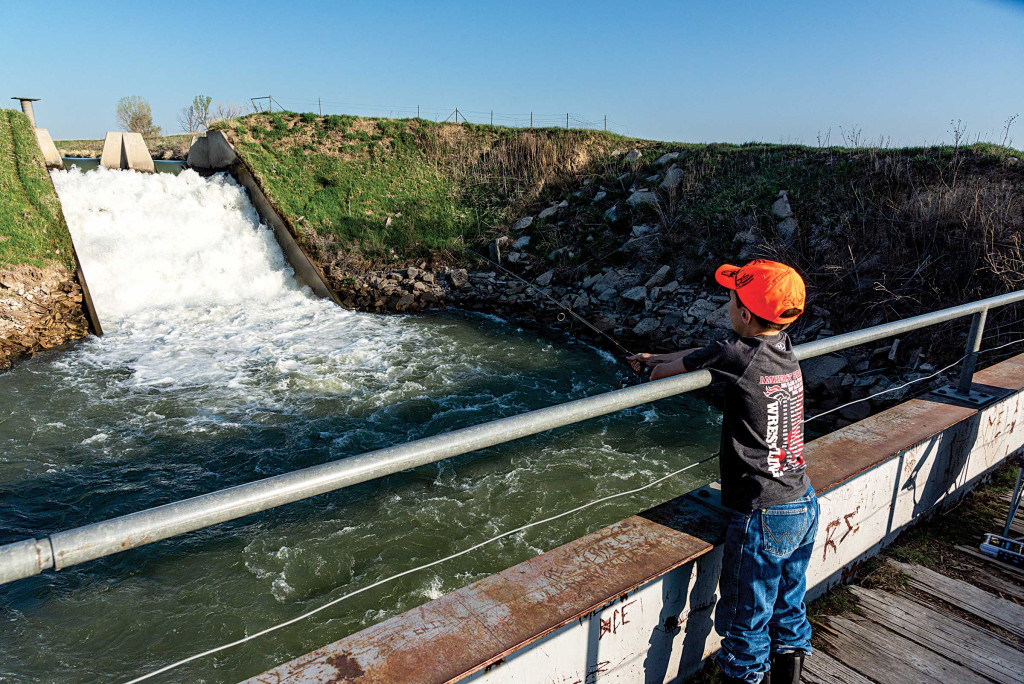At 2,845 acres and a little more than 4 miles long, Sherman Reservoir is far from Nebraska’s largest.
Enlarge

Story and photos by Eric Fowler
At 2,845 acres and a little more than 4 miles long, Sherman Reservoir is far from Nebraska’s largest. Yet between five large bays that branch off the main lake, and the many coves found in each of those, the lake boasts a maze of 77 miles of shoreline when full. That ranks second among the state’s lakes, leaving plenty of water for boaters to explore and shoreline habitat for fish.
Full Pool
Completed in 1962, Sherman Dam was built by the U.S. Bureau of Reclamation on Oak Creek northeast of Loup City. The creek, dry except following rain, doesn’t supply the water for the lake, however. Instead, water is diverted from the Middle Loup River at Arcadia Dam, 18 miles to the northwest, and flows through a canal to the lake, where it backs up into loess canyons branching off the main arm. During the summer, water stored in the lake, owned by the Farwell Irrigation District, irrigates 49,000 acres of farmland in the Middle Loup Valley.

Sherman Reservoir State Recreation Area offers more than 300 primitive campsites in nine locations around the lake, including a few in out-of-the way corners. Until 2023, the only hookups for RVs were found in the seasonal and nightly spots offered by the Trade Winds Marina on the east side of the lake. Following expansion and improvements, the West Ridge Area campground now provides 61 pads with electrical hookups overlooking Thunder Bay on the south shore of the lake.
During the summer, boats and personal watercraft buzz around the lake, many pulling skiers and tubers, the size and shape of the lake providing shelter from the wind on most days. Lacking the sand beaches offered by several of the state’s lakes, sun seekers often retreat to a bay, drop anchor and float the afternoon away on a hot summer day.

Starting in July, irrigation releases draw the lake down an average of 9 feet. Unlike some reservoirs, however, Sherman refills every year. That process starts in the fall, after irrigation season, bringing the lake to 5 feet from full. Diversions resume in mid-April, and by mid-May, the lake is at full pool.
Fishing and Hunting
Sherman is one of the top walleye and crappie lakes in the state. It is one of three lakes where Game and Parks biologists net walleye during the spawn, collecting eggs to feed the hatchery system and raise walleye to stock in Sherman and other waters around the state. As such, the area along the dam is closed to fishing from April 1-20, but anglers can often find fish there prior to the closure, and elsewhere during it. Walleye fishing peaks in May and June. It can slow considerably in the summer if gizzard shad, the lake’s forage base, have a successful hatch, but picks up again in the fall.
The crappie bite is best when the lake fills in May and floods the cottonwood trees and willows growing on the shoreline, or the trees that have toppled into the lake. Fall fishing can be good for crappies, too.

There are other fish to chase at Sherman. When water starts pouring into the lake in April, anglers find white bass below the inlet in the Fisherman’s Bridge area. During the summer, white bass can be found following schools of shad in the lake. Plenty of channel catfish, and some big ones, provide opportunity throughout the summer. Whatever you’re fishing for, hang on to your rod, and bring a big net. You might hook into a northern pike or a flathead catfish. The flatheads can top 70 pounds, and one caught and released in 2001 measured 6 inches longer than the current 89-pound state record.

The reservoir is surrounded by 4,721 acres of public land, making it a popular spot among hunters. White-tailed deer and turkeys roam the tree- and brush-filled draws, and pheasants, quail and a few prairie-chickens are found in the upland prairie and many food plots on the wildlife management area. Maintenance trails through the area are perfect for a long, scenic hike, especially in the fall, when the cottonwood leaves turn golden yellow.
A dozen trails lead to the water or the wildlife lands around the lake. At the end of each of them — like the coves on the reservoir itself — you will certainly find something to your liking.

The post Shoreline to Spare – Sherman Reservoir SRA appeared first on Nebraskaland Magazine.
















